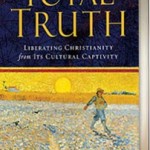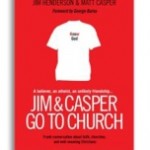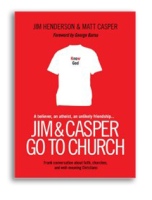I love my new job. It pays me beans, but I basically get paid to read while I work. Last week, I read three books. So far (it’s Tuesday), I’ve read two more.
I’m realizing that while I’ve been in seminary, my mind went into reverse. There is something about my rebellious flesh that cannot enjoy a book if I am required to read it. Though, if truth be told, most of the assigned reading at seminary is mind-numbingly boring. Not all, but most.
Anyway, since I got this new job, I’ve been reading about two books a week, and I can feel my mind starting to reawaken with creativity and life. I love it. I don’t want to sleep or eat. I just want to read, think, and write. My mind is on fire with ideas. It’s my resurrection from the land of the dead.
I’m not sure what job I will get next (this job ends in mid May), but whatever it is, I need to keep reading (even if it’s not at work). I also don’t think I’ll go on for a Ph.D. I’d get Permanent Head Damage, and I’m not sure I’d pull out of that kind of tailspin.







